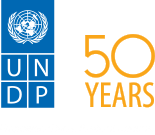UNDP works in partnership with the Federal Government of Nigeria, development partners, UN agencies, civil society and local communities to help identify local solutions to meet national development challenges through a range of interventions that combine UNDP’s expertise and comparative advantage in the areas of Governance & Peace Building, Inclusive growth and Sustainable Development.
United Nations Development Programme in
Nigeria




















